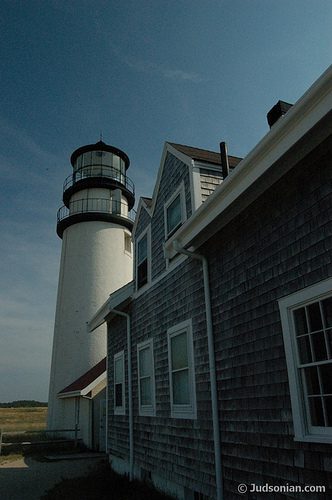
Recently I went back to the Cape and found myself one afternoon at a neat little spot called the Chatham Fish Pier, where the Cape's two worlds of tourism and working fisheries meet.
At the fish pier, tourists climb a set of steps and stand on a platform, from where they can watch fishing boats pulling into the harbor around 2 p.m. every day, surrounded by hundreds of seagulls angling for a bite of the boats' precious haul.
The boats pull to shore just below the eyes of the curious tourists, who gawk as huge piles of fish are unloaded.
It's dirty, back-straining labor for the fishermen—a world away from more common Cape Cod jobs like staffing a mini-golf course or waiting tables. Historically the fishermen made a good living doing this, but that's not necessarily true anymore with the advent of limits on fish harvests and corporate fishing fleets.
The fishermen based out of Chatham have gotten organized in recent years to try to protect their livelihoods, and to learn new skills to survive against their much bigger, non-local competitors. Through a group called the Cape Cod Fishermen's Alliance, they successfully got the Feds to allow flexibility in how fish are caught. For awhile, fishermen were limited on the number of days they could go to sea and how many fish they could bring into port on a given day. These limits led to a huge amount of wasted fish, which had to be thrown overboard to keep within the rules. Now, as a result of the fishermen's organizing, each individual fisherman is allowed an annual quota of fish.
The alliance has actively participated in the market for this quota, which can be bought, sold or leased. In some cases it has bought quota from retiring fishermen and sold it or leased it to younger fishermen, to avoid it going to larger, non-local boats.
Standing not far from million dollar mansions for summer visitors, amid a hundred tourists who spent the rest of their vacations (as I did) blissfully out of touch with global economic realities, I had to smile at the use of the fish pier as a tourist destination, though it didn't look the tourists were spending much money. A small fish take-out shack near the pier makes a little money from the people gathered to watch the boats. We bought some fish and chips and sat down to ponder the endurance of the Cape's fishing fleet.
(Photo by Judson Weinsheimer CC BY-NC-ND)





The leasing of fishing quota is a joint program of the Cape Cod Fishermen’s Alliance and the Community Development Partnership, a community development corporation serving Lower Cape Cod.
The CDP provides business TA and support to fishermen and manages the joint quota bank that makes quota available to our small boat fishing fleet at below market rates. This strategic effort has preserved 70 small businesses and preserved 175 jobs on the Lower Cape — protecting an important economic sector and a vital part of our community’s character.
Because, you know, waiting tables is so glamorous?
As a native Cape Codder, I agree that this is an important issue and one that should be discussed by planners and policymakers in a community development context, but I fail to see how this post does this. It reads more like a sidebar in a travel magazine.